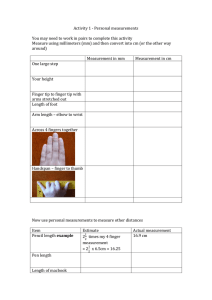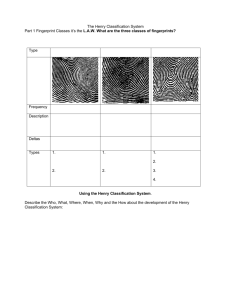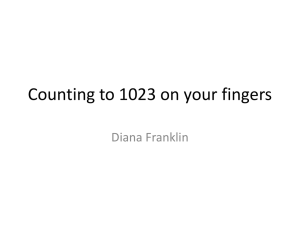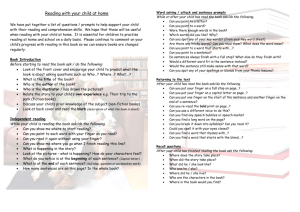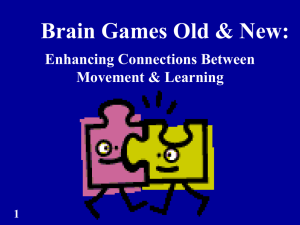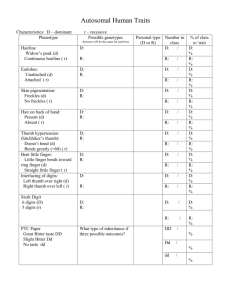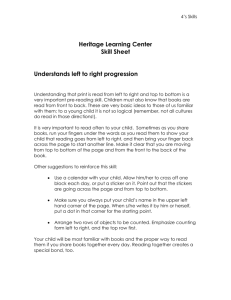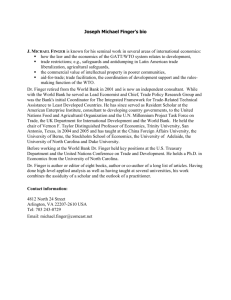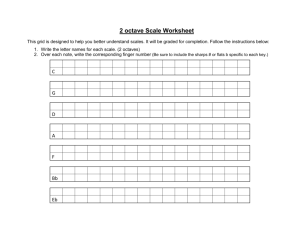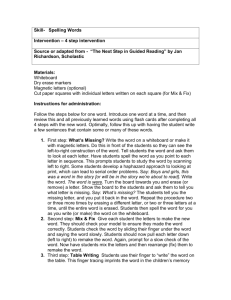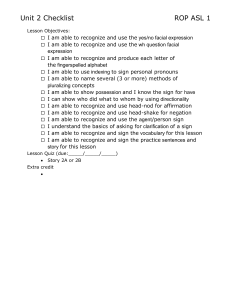NAME: :__________PERIOD_____
advertisement
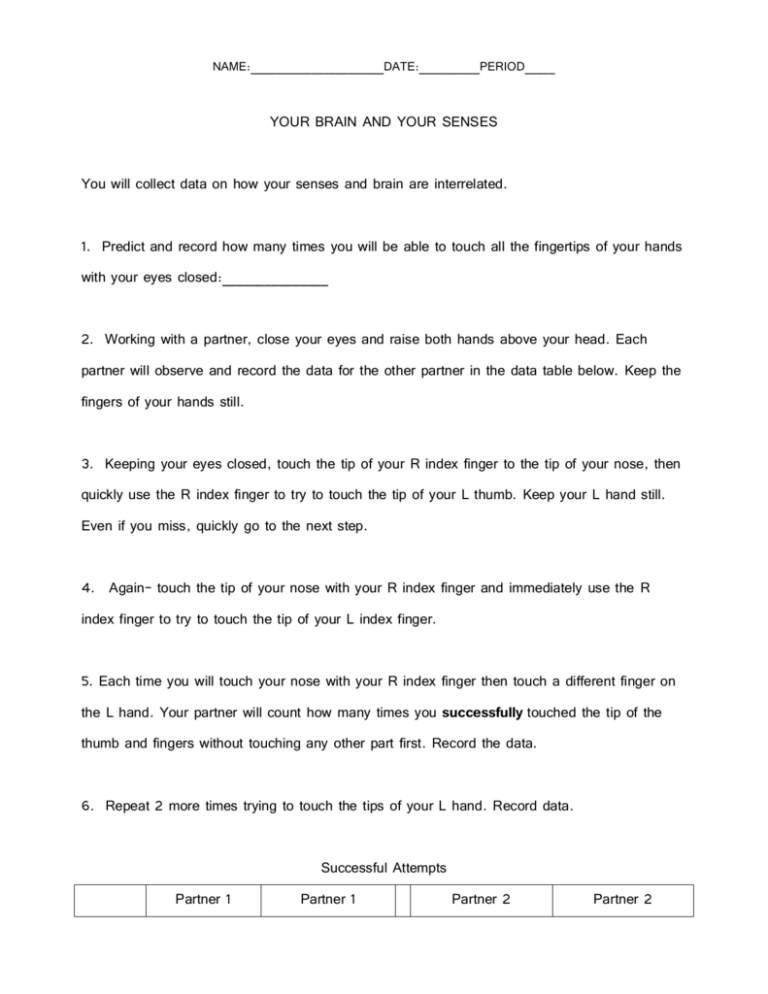
NAME:______________________DATE:__________PERIOD_____ YOUR BRAIN AND YOUR SENSES You will collect data on how your senses and brain are interrelated. 1. Predict and record how many times you will be able to touch all the fingertips of your hands with your eyes closed:_______________ 2. Working with a partner, close your eyes and raise both hands above your head. Each partner will observe and record the data for the other partner in the data table below. Keep the fingers of your hands still. 3. Keeping your eyes closed, touch the tip of your R index finger to the tip of your nose, then quickly use the R index finger to try to touch the tip of your L thumb. Keep your L hand still. Even if you miss, quickly go to the next step. 4. Again- touch the tip of your nose with your R index finger and immediately use the R index finger to try to touch the tip of your L index finger. 5. Each time you will touch your nose with your R index finger then touch a different finger on the L hand. Your partner will count how many times you successfully touched the tip of the thumb and fingers without touching any other part first. Record the data. 6. Repeat 2 more times trying to touch the tips of your L hand. Record data. Successful Attempts Partner 1 Partner 1 Partner 2 Partner 2 Trials w/Left hand w/Right hand w/Left hand w/Right hand 1 2 3 Total Mean 6. Switch hands: use your L index finger to touch your nose, your right thumb, your nose, your right index finger, your nose, etc. Record the observations. Repeat 2 more times with your R hand. 7. Which hand was more successful- the R or L? ________Is that your dominant hand?_________ 8. Repeat the experiment, but this time- wiggle your fingers you’re trying to touch. Successful Attempts Trials 1 2 3 Total Mean Partner 1 Partner 1 Partner 2 Partner 2 Left hand Right hand Left hand Right hand 9. Which hand was more successful- the R or L?_____ Were the results the same as the first experiment above?______ 10. How did your prediction differ from the actual results? 11. Which experiment was easiest for you to touch the opposite fingertips? 12. Give a possible reason as to why that experiment was easier: 13. To interpret your observations about the results from the experiment- What can you generalize about your ability to do things with your hands without using your sense of vision? List 3 conclusions about how your vision affects your ability to do things: 1. 2. 3. NAME:_____________________DATE:__________PERIOD:__________ SEEING IS BELIEVING 1. Before doing this experiment, read all the directions and predict how many tries you take to hit the X with your eyes closed: Prediction:_________________times 2. Mark an X about 1 cm tall on a piece of paper. Observe its position on the paper relative to the top, bottom, and sides. 3. Hold your pencil in your dominant hand and close your eyes. Raise the pencil above your head and then try to make a dot on the paper as close to the X as possible. 4. Write the number 1 next to the dot and measure in cm the distance from the dot to the center of the X, and record the information in the data table. Repeat this step until you hit the X or until you’ve tried 6 times. Try with both hands. Each partner will record own data. Trials 1 2 3 4 5 6 Left hand Right hand Distance to X (cm) Distance to X (cm) 5. How close to your prediction were the actual results? Did it take more or fewer tries to hit the X than your prediction? 6. Write your full name in the space to the right: 7. Close your eyes and write your name again: 8. Compare the 2 writings. What are some differences you observe? 9. To interpret your observations about the results from the 2 experiments- What can you generalize about your ability to do things with your hands without using your sense of vision? List 3 conclusions about how your vision affects your ability to do things: 1. 2. 3.
